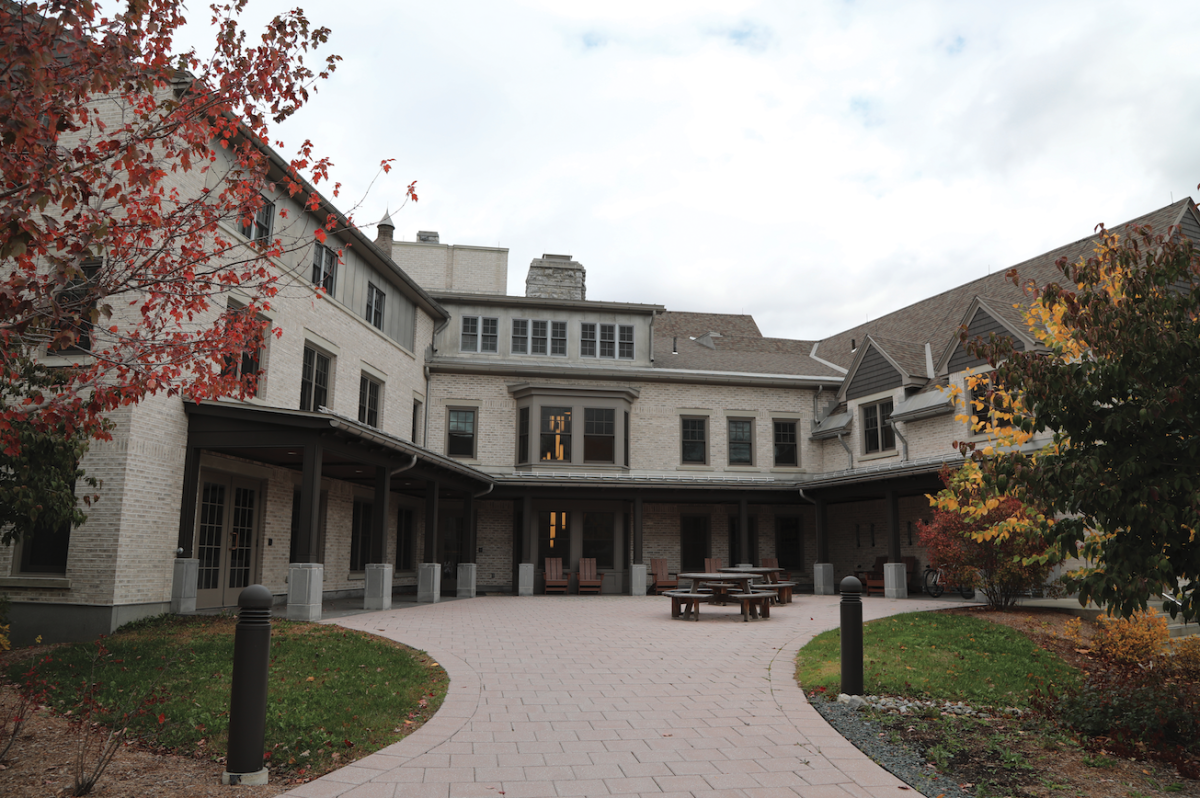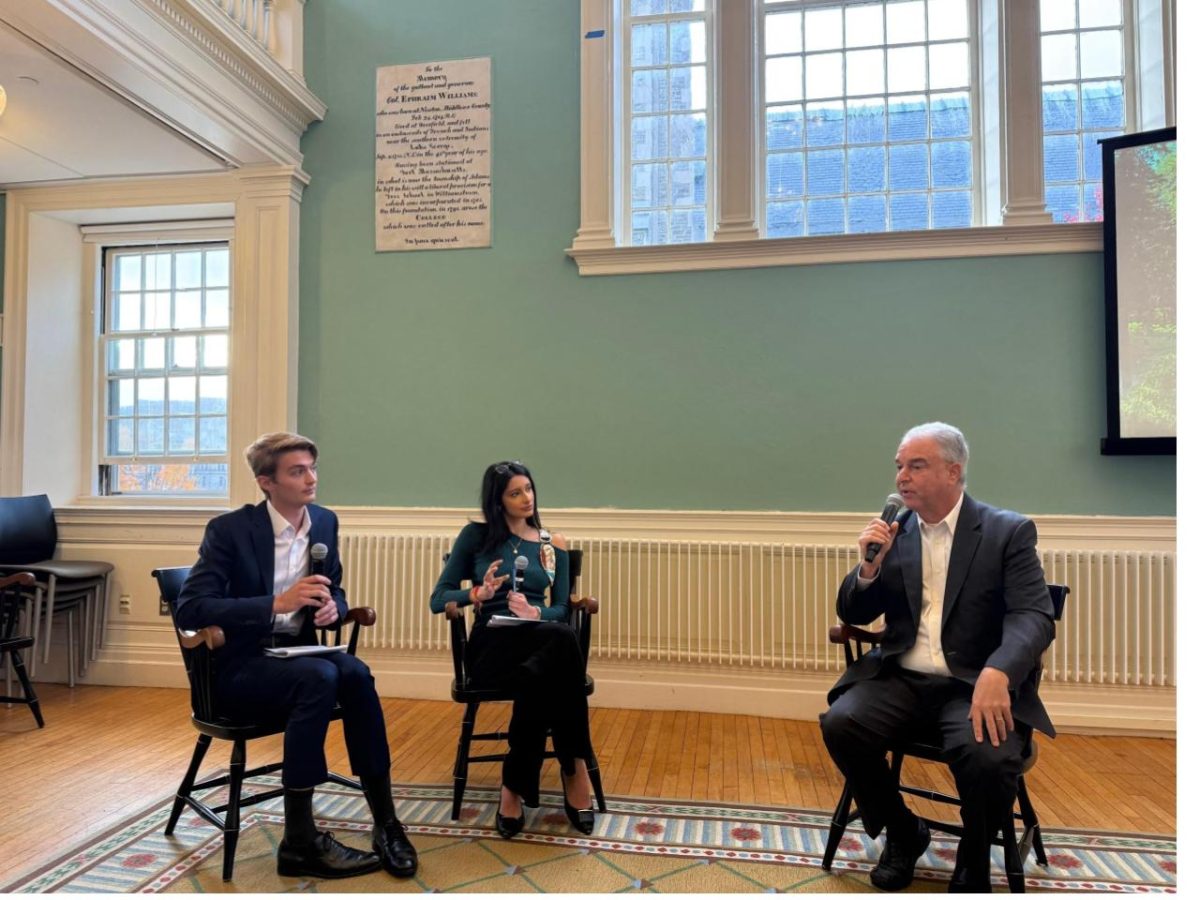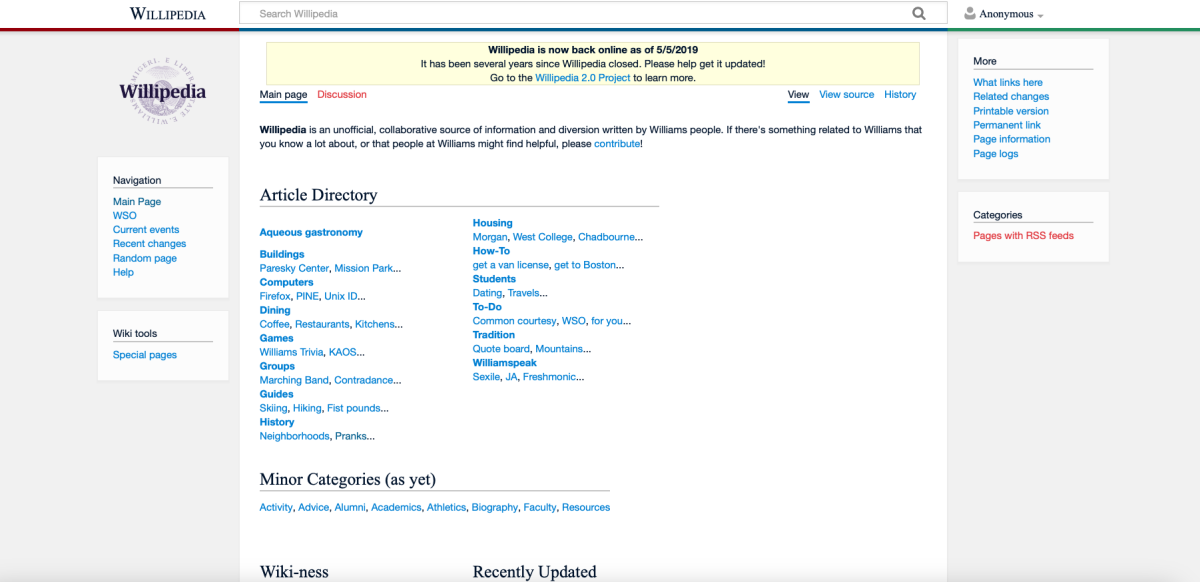With the College’s decision to welcome students back for an in-person but socially distanced fall semester will inevitably come changes to first-year student traditions, including EphVentures, the entry system and the role of Junior Advisors (JAs). The College’s decision to make First Days fully virtual will affect first-year students’ transitions into college this coming fall, while JAs currently worry that their role is evolving in detrimental ways due to potential changes to the entry system. (More reporting on the nature and extent of JAs’ concerns will be published shortly.)
While students are in the process of making the decision to enroll, whether in-person or remotely, or to take a personal leave or gap year, the College is also in the process of making decisions about what the fall semester will look like, with many of these plans being tentative due to uncertainty regarding the number of students who will be on campus in the fall, as the deadline for students to announce their plans is not until July 10.
The entry system, a staple unique to first-year life at the College , is subject to change due to the introduction of pods, but the College is still working to figure out many of the specifics. Since the plan is to have every student living in a single room, if more first-years enroll in-person than the number of rooms in the currently designated first-year dorms, the College may have to add additional housing for first-years in buildings other than Mission Park, Sage Hall and Williams Hall.
The size and number of first-year entries is still under consideration. “It’s going to depend on final numbers, so I really can’t commit to an approach yet, but we should have a better idea after July 10,” said Senior Associate Dean of Campus Life Doug Schiazza.
The College is also discussing what the role of JAs will be within a modified entry system. “I don’t think it’s going to fundamentally change in terms of what they’re there to do for students,” Sewell said. “I’m hoping that we can get to a resolution where they’re not tasked with being any sort of disciplinarian.”
But the College has communicated to the JAs to the Class of 24 that the JA role is subject to change in a number of ways, including possibly being able to pull in friends from their own class into their pods. Additionally, if the College were to pay JAs, which has been a topic of conversation in virtual JA town halls on Monday and Tuesday, they would become mandatory reporters to the College of rules broken in the College’s public health commitment. This potential plan has stirred upset amongst many JAs.
JA Oliver Behrens ’22 said that they would feel uncomfortable being a JA if the role included being a mandatory reporter to the College. “I think it would be detrimental because the frosh wouldn’t be able to trust us,” they said. “Just because you broke a rule, doesn’t mean you should have nowhere to turn to for emotional support or for advice.”
There has been ongoing conversation between JAs, the Junior Advisor Advisory Board (JAAB) and Sewell about the effects of the pod system within entries. “What I’m personally concerned about, and [what] other JAs are also concerned about,” Behrens said, “is the implementation of the pod system and how that’s going to be incredibly isolating for a lot of students, especially students of color, who already face huge amounts of isolation in the entry system as it is without the added social distancing.”
Behrens also mentioned that some JAs have been asking for opt-in affinity housing for incoming first-years.
On Tuesday, Sewell held a virtual town hall meeting for JAs in which he discussed with JAs being able to live in separate pods from their co-JAs while still being able to meet with them in a non-socially distanced way.
Dean Sewell said that the College is still considering the option of being a JA remotely. “It depends on if there are a sizable number of first years who choose to be remote,” Sewell said. “Then … a JA could be a JA for [a] group of students who are remote, but we’re waiting to see what the landscape looks like on Friday.”
JAAB has been meeting over the past few days to discuss the entry system and the role of JAs. “We don’t have much more concrete info than we did last week,” JAAB co-president Peter Le ’21 said. “There are a lot of plans [and] possibilities floating in the air, but nothing can be settled for sure until at least after July 10.”
Though the JA role is still evolving to fit the constraints of the fall semester, Behrens said they are still looking forward to being a JA. “I’m still looking forward to the community building aspect and being a support system,” they said. “The incoming [first-years], the Class of 2020, has had it rough and I feel like they really need that support system and that college advice.”
Additionally, for the first time in the College’s history, first-year students will attend First Days virtually, whether they choose to spend the semester on campus or learn remotely from home. Students who were going to lead Williams Outdoor Orientation for Living as First-Years (WOOLF), Exploring the Arts, Where Am I?, Leading Minds, Root or Team Eph will now have the chance to participate in the more general “Peer MentEph” program instead.
“The program will pair small groups of incoming students with a Peer Mentor, who will help them navigate the process of choosing classes, among other academic hurdles at Williams,” Dean of First-Year Students Christopher Sewell ’05 wrote in an email to EphVentures leaders on June 30. “In addition, Peer Mentors will also still help in curating events that their respective EphVentures would have put on to get their Peer MentEphs to attend.”
These virtual EphVentures programs will be organized and led by their respective leaders and will be open to all first-years, regardless of which one of the six traditional programs they would have signed up for.
“Maybe you can do a virtual hike one morning and the next day go to the virtual talk for WCMA and not feel like you’re stuck to a particular [program],” Sewell said.
Ruth Bristol ’23, who was going to be a leader for the Exploring the Arts EphVentures program, said that EphVentures leaders weren’t made aware of the event’s cancellation after campus received President Maud S. Mandel’s June 29 email. “We didn’t actually find out officially,” she said. “I sort of read between the lines of the FAQs, and they said that orientation would be different but it didn’t explicitly say no EphVentures program [would happen].”
Eventually, Christina Yang, the director of the Exploring the Arts program who works at WCMA, forwarded an email from Sewell to the program’s leaders explaining that traditional EphVentures will not be taking place during First Days. Bristol expressed disappointment about the program’s cancellation after preparing for it during the spring semester.
“We spent months preparing and getting to know each other, and just to hear suddenly that it was all cancelled was weird,” she said. Bristol said that she will soon be meeting with the other Exploring the Arts leaders to figure out how they will lead virtual activities that align with the original program’s goals of sharing the arts in and around the College with students.
Bristol said she is looking forward to being a Peer MentEph, but lamented that first-years will lose the opportunities to meet new friends that they would have gained through the EphVentures program. “I think [the College is] overlooking the social aspect of EphVentures that is so important,” she said of the Peer MentEph program’s main focus on academic advising over social interaction. “The group dynamics outside of the entry are so important. A lot of my best friends are from Exploring the Arts… Without that, I feel like first-years are sort of lost in entries because they’re really big … but I think [having] those tight-knit groups makes it easier to become closer friends and not be overwhelmed.”
Gwyn Chilcoat ’24 made the decision to enroll in-person shortly after receiving Mandel’s email on June 29, but she expressed disappointed that she won’t be able to participate in the Where Am I? EphVentures program. “It’s very different from going all over campus and walking with your friends and sitting in a new building you’ve never been in — just sitting in your room and hitting play,” Chilcoat said of the new virtual orientation program. “I’m hoping there are some interaction portions … at least some opportunities to engage with people.”
Chilcoat said that the College’s decision to close Mission Park Dining Hall and the possibility of having pods within entries is affecting her decision on which dorm to request. “I was pretty dead set on Mission, but now it sounds like Frosh Quad might make more sense, because you already have those common rooms for pods and because Paresky is right there and now the Mission dining hall isn’t open, so a lot of the pros of Mission seem to have neutralized,” she said.
Sewell also said that there will be a GLOW page that will host videos of the talks or events that first-years would traditionally attend — including Voices, Choices, Williams Reads and Framing Community — and he asked that the JAs be involved with these programs. “There will be some moments where [students] have to get together in a Zoom to debrief Voices or … Choices or whatever those things look like,” he said. Placement exams will also be administered online so that students can take them before preregistration.
Incoming student Zayneb Moin ’24 said that the College’s decision to make First Days completely virtual and potential changes to the entry system are important factors in her decision to take a gap year instead of enrolling for the coming academic year. “This is sort of the thing that was a big part of my decision to come to Williams, just the fact that there’s so much that goes into making the first-year experience what it is,” she said. “It’s probably the only school that has the entry system, and with EphVentures, there are so many different programs that you can opt for, and not having that sort of cushion through the start of college seems really scary.”
Moin, who is from Pakistan, said that because she is an international student, she finds these changes especially daunting. “As an international [student], I’d be travelling pretty far to get to college,” she said. “So for me, coming all the way just to not be able to have the typical traditional experience, with EphVentures and all that, [is] a letdown for me, and that’s not really how I wanted my freshman experience to look.”
This is a developing story. The Record will provide further coverage online throughout the rest of the summer.








